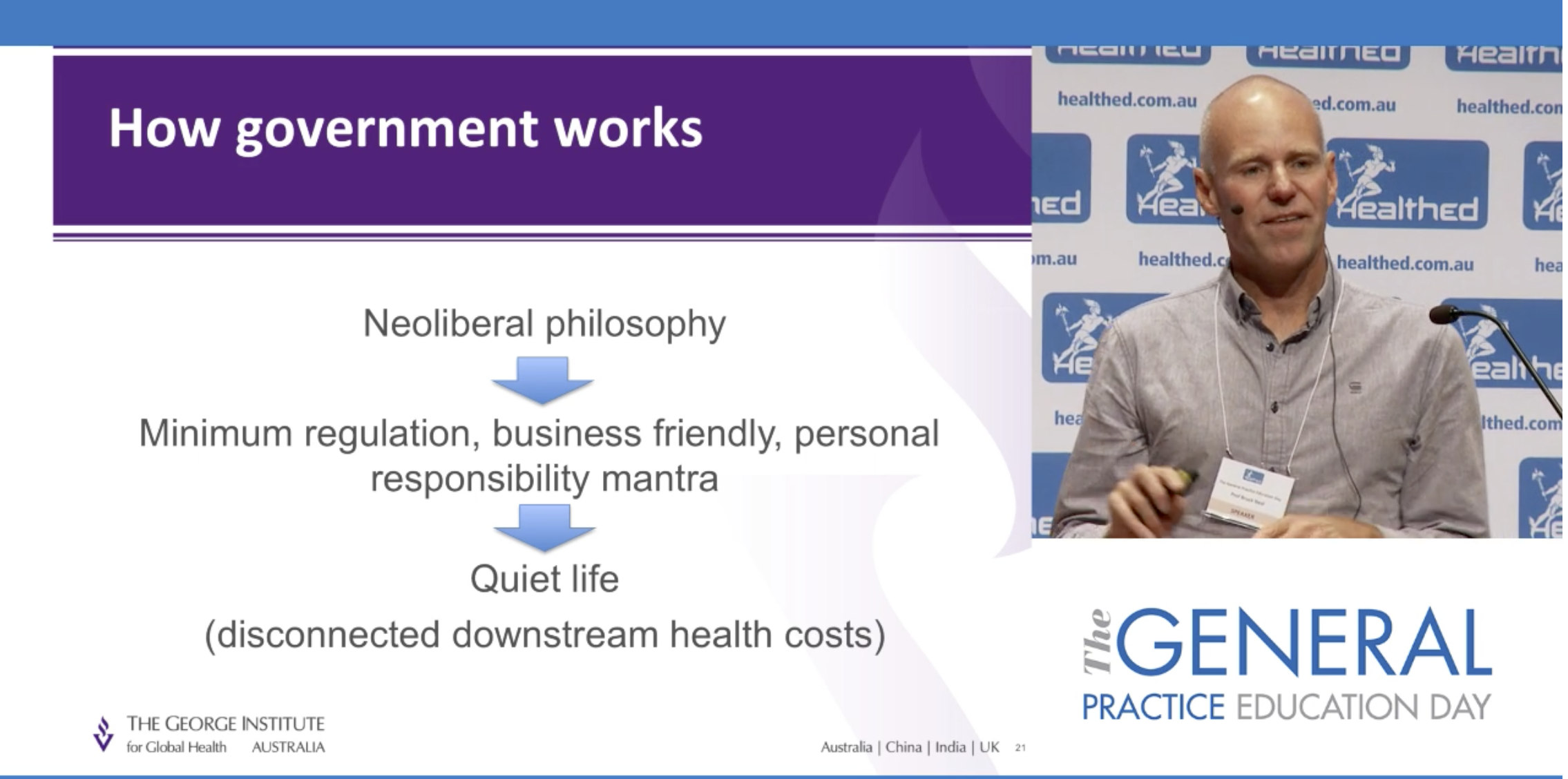Dietary risks are a leading cause of disease and death worldwide, and both the food industry and government are to blame
Dietary risks are a leading cause of disease and death worldwide, and both the food industry and government are to blame, says Professor Bruce Neal.
The food industry makes a profit by adding as much salt, sugar and fat as possible to a cheap base ingredient, says Professor Neal, an epidemiologist at The George Institute for Global Health.
This produces a low-cost product with optimal sensory qualities, he says.
“They hit the bliss point. They give it a really long shelf life, make it habituating for consumers and then they sell it everywhere all the time.”
The food industry is geared towards maximising profits and shareholder value within the constraints of the regulatory framework, he says.
[media_embed] https://player.vimeo.com/video/194599722[/media_embed]
Our government tends to operate on a neoliberal philosophy, which favours minimum regulation,
business-friendly attitudes and a mantra of personal responsibility.
“And this is actually great for government because it gets it what government wants, which is a quiet life,” says Professor Neal.
“Now, you might think government would be really interested in the public health side of things because it has to pay for it.
“But mostly the problems caused by poor diet now don’t really have an impact until 20, 30, 40 years down the track.
“And within the system they are highly disconnected from each other. So, the people who look after food regulation, they don’t really have anything to do with paying for the health consequences of it.”



